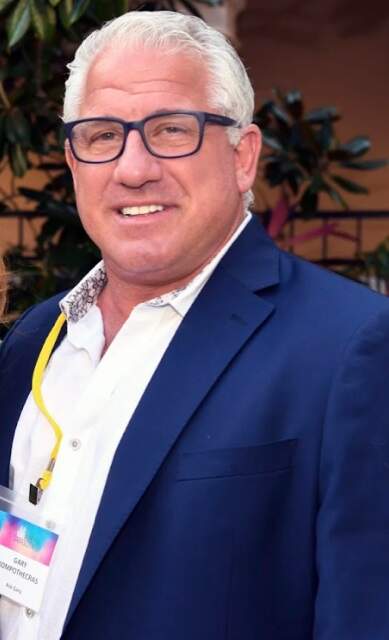In the bustling world of commerce and industry, where profits often reign supreme, there exists a class of individuals whose legacy transcends the boardrooms and balance sheets. These are the corporate titans, the visionaries who revolutionize economies and nurture the communities they touch. Their philanthropic endeavors, often overshadowed by their business acumen, are monumental, shaping societies and touching lives in ways that resonate far beyond their corporate empires. In this exploration of corporate philanthropy, we delve into the stories of these titans of giving, uncovering the depth of their generosity and its impact on the world.
The Evolution of Corporate Philanthropy:
Corporate philanthropy has come a long way since its inception, evolving from sporadic acts of charity to systematic, strategic giving embedded within the fabric of business operations. Today, it is not uncommon for corporations to have dedicated departments or foundations solely focused on philanthropic endeavors. This shift reflects a broader recognition among business leaders of the interconnectedness between corporate success and societal well-being.
At the forefront of this evolution are individuals like Bill Gates, whose namesake foundation has become synonymous with transformative philanthropy. As the co-founder of Microsoft, Gates revolutionized the technology industry, but his commitment to eradicating global poverty and disease truly sets him apart. Through the Bill & Melinda Gates Foundation, he has invested billions in initiatives to improve healthcare, enhance education, and alleviate poverty worldwide. His strategic approach to philanthropy, guided by data and innovation, has catalyzed groundbreaking advancements in public health and agriculture, saving millions of lives.
Warren Buffett, often hailed as the "Oracle of Omaha," is another titan of giving whose impact reverberates across generations. Despite his immense wealth as the CEO of Berkshire Hathaway, Buffett leads a famously modest lifestyle, pledging most of his fortune to philanthropic causes. His annual contributions to the Bill & Melinda Gates Foundation and other charitable organizations have empowered initiatives ranging from early childhood education to disaster relief. Buffett's philosophy of "giving while living" exemplifies a commitment to making a tangible difference in the world rather than amassing wealth for its own sake.
Beyond the realm of technology and finance, the spirit of corporate philanthropy extends to diverse industries, each with its champions of social change. Take, for instance, the fashion industry, where icons like Ralph Lauren have leveraged their brands to support causes close to their hearts. Lauren's eponymous foundation focuses on initiatives such as cancer research, veterans' support, and education, embodying a commitment to style and substance. Through partnerships with leading nonprofits and advocacy organizations, Lauren demonstrates the power of fashion as a force for good, inspiring consumers and competitors alike to give back.
Similarly, in the entertainment industry, figures like Oprah Winfrey have used their platforms to effect positive change on a global scale. From her humble beginnings as a talk show host to her status as a media mogul, Winfrey has remained steadfast in her dedication to philanthropy. Through the Oprah Winfrey Foundation, she supports education, healthcare, and human rights programs, empowering individuals to realize their full potential. Winfrey's philanthropic efforts extend beyond monetary donations, encompassing initiatives such as mentorship programs and leadership development to foster long-term sustainable change.
The Impact of Corporate Philanthropy:
While the financial contributions of these corporate titans are undoubtedly significant, their impact transcends mere monetary value. Corporate philanthropy can spark innovation, drive social change, and inspire collective action on a global scale. By leveraging their resources, expertise, and influence, these titans of giving tackle some of the most pressing challenges facing humanity, from poverty and inequality to climate change and healthcare disparities.
Consider the case of Mark Zuckerberg, the co-founder and CEO of Facebook, whose philanthropic efforts through the Chan Zuckerberg Initiative are reshaping the landscape of public health and education. Zuckerberg's commitment to personalized learning and scientific research reflects a belief in the power of technology to drive social progress. Through partnerships with leading institutions and grassroots organizations, the Chan Zuckerberg Initiative empowers communities to address systemic barriers to opportunity, paving the way for a more equitable future.
Likewise, in environmental conservation, titans like Jeff Bezos, the founder of Amazon and Blue Origin, lead the charge toward a sustainable future. Bezos's establishment of the Bezos Earth Fund underscores a commitment to addressing the urgent threat of climate change through innovation and collaboration. By investing in renewable energy, conservation efforts, and climate resilience initiatives, Bezos seeks to preserve the planet for future generations, recognizing the interconnectedness between environmental stewardship and human prosperity.
The Legacy of Corporate Philanthropy:
As we reflect on the remarkable generosity of these corporate titans, we are reminded of the enduring legacy they leave behind. Their contributions to society, both tangible and intangible, serve as a beacon of hope in a world grappling with complex challenges. Beyond the boardroom, they are humanitarians, activists, and changemakers whose actions inspire others to join the fight for a better world.
Corporate philanthropy represents a convergence of business success and social responsibility, embodied by the titans of giving who lead by example. Their unwavering commitment to making a difference, combined with their strategic vision and innovative approaches, can transform lives and communities for generations to come. As we celebrate their extraordinary contributions, let us also recognize our collective responsibility to build a more just, inclusive, and compassionate world, one act of kindness at a time.
